Islamic Perspectives on Genetic Engineering: Balancing Benefits and Risks
Introduction
Genetic engineering, also known as genetic modification or gene editing, is a powerful tool that enables scientists to manipulate the DNA of living organisms, including humans, animals, and plants. With this technology, they can create new traits, enhance desirable traits, and remove undesirable ones. The potential applications of genetic engineering are numerous, including the development of new medicines, the improvement of crop yields, and the creation of new materials[i].
Genetic engineering is a rapidly advancing field with numerous applications, ranging from medicine to agriculture. While it has the potential to bring significant benefits, there are also ethical, social, and environmental concerns that need to be addressed. These concerns can be evaluated from the perspective of Islam, including the principles of Maqasid Shariah and the Sustainable Development Goals (SDGs).
Genetic engineering can be evaluated in terms of its potential benefits and harms to humanity and the environment. The principles of Maqasid Shariah emphasize the importance of preserving and promoting human well-being, which includes protecting life, health, and the environment. Therefore, any application of genetic engineering should be evaluated in terms of its potential impact on these aspects. It is essential to consider the risks and benefits of genetic engineering and ensure that it is used ethically and responsibly. “Consideration of consequences” is an important principle in Islamic jurisprudence to heed of when making decisions and judgements.
Similarly, the SDGs provide a global framework for sustainable development that emphasizes social, economic, and environmental sustainability. Genetic engineering has the potential to contribute to some of these goals, such as ending hunger, improving health, and reducing poverty. However, it is also essential to ensure that the use of genetic engineering does not create inequalities or harm the environment. By doing so, we can harness the benefits of genetic engineering while ensuring that it contributes to human well-being, social justice, and environmental sustainability.
Views of Islamic Jurists on Genetic Engineering
From a Fiqh perspective, Islamic jurists have different views on the hukum (ruling) regarding GE, as this technology is a contemporary issue that may not be directly addressed in the Quran and Sunnah. The jurists view it from two main practices: human genes and plant and animal genes. For human gene practices, the jurists see it as legitimate for treatment with hereditary diseases but differ on whether it is wujub (mandatory), istihbab (recommended), or ibahah (permissible). GE for humans is permissible if there is a need or emergency (darurah) situation, such as dealing with incurable diseases[ii]. However, the jurists said it was not permissible to do GE for gene beautification, such as changing gene characteristics to increase brain capability, change skin or eye color, as it is recognized as changing Allah's creation. For GE in plants and animals, it is permissible in Islam as they were created by Allah to be utilized by humans, but it must be followed with the shariah lines or standards and safe from any harm[iii]. It should not be used in a way that causes harm to the nature, animal or the system.
Maqasid Shariah, or the objectives of Islamic law, in Genetic Engineering, is to protect life and soul. The prohibition from using GE on humans is to avoid gene damage and chaos for future generations. However, GE technology in the modern world helps many countries develop food production, which can decrease hunger and starvation problems. Therefore, it is necessary to balance the potential benefits and harms to society and ensure that the technology is used for the betterment of humanity, following the principles of Islamic law[iv].
Genetic Engineering and the Sustainable Development Goals
Moreover, the Sustainable Development Goals (SDGs) have a significant impact on GE practices. The SDG’s elements in GE practices include good health and well-being, decent work and economic growth, sustainable cities and communities, and quality education. In agriculture, GE technology can improve the yield, quality, and resistance of crops, leading to better food security, a healthier environment, and more sustainable farming practices. In medicine, GE can provide more precise treatments, reducing the risk of side effects, and contributing to better health outcomes. It also has the potential to create new job opportunities and promote economic growth[v].
Conclusion
In conclusion, genetic engineering has the potential to bring significant benefits to human life and society, but it also raises ethical and moral concerns, particularly in the Islamic world. From a Fiqh perspective, scholars and religious leaders have different views on the permissibility of GE, depending on the practices, and the situation. However, the principles of Islamic law, such as Maqasid Shariah, can provide a framework for governing GE practices and ensuring that they are used for the betterment of humanity. Moreover, by following the principles of the SDGs, GE practices can contribute to creating a better, healthier, and more sustainable world. It is essential to balance the potential benefits and harms of GE, ensure that it is used in accordance with ethical and moral values, and align it with the principles of Islamic law and the SDGs.
References
ʾAbdul Habīb, Zufar. (2007). Al-Handasah al-Wirāthiyyah wa Ahkāmahā al-Syarʾiyyah. Doctoral’s thesis, Mohammed V University, Rabat.
Al-Qarahdāghiy, ʾArif. (2011). Masāil al-Jīnāt al-Bashariyyah. Silsilah buhūth fiqhiyyah fi Qadāyā Muʾasirah (3). Kuala Lumpur: IIUM Press.
Mohd Kashim, Mohd Izhar Ariff & Husni, Ahmad, “Maqasid Shariah in Modern Biotechnology Concerning Food Products”, International Journal of Islamic Thought 12, no. 1 (2017) :28-36.
Mohd Kashim, Mohd Izhar Ariff & Husni, Ahmad. (2017). Maqasid Shariah in Modern Biotechnology Concerning Food Products. International Journal of Islamic Thought. 12. 27-39. 10.24035/ijit.12.2017.003.
Sims, Tamika. (2020, December 11). GMO Crops: Safety, Regulation and Sustainability Insights. Food Insight. https://foodinsight.org/gmo-crops-safety-regulationandsustainabilityinsights/#:~:text=Many%20GMO%20crops%20grow%20better,also%20support%20food%20system%20workers.
Zaghib. M, Qamri. (2009). Al-Bī’ah, al-Zirāʿah al-mustadāmah wa al-muntajāt al-muʿaddalah wirathiyyan. Abhāth iqtiṣādiah wa idariah al-ʾadad al-khāmis juwān 2009. University 20 August 1955 of Skikda.
About the author
Nurul Farhana binti Azmi is an undergraduate student of the Department of Fiqh and Usul al-Fiqh at International Islamic University (IIUM), Kuala Lumpur.
Endnotes
[i] زغيب، مليكة، قمري، "البيئة، الزراعة المستدامة والمنتجات المعدلة وراثيا، أبحاث اقتصادية وإدارية العدد الخامس جوان 2009، جامعة 20 أوت 1955 سكيكدة، الجزائر، 2009. ص 131.
[ii] القرهداغي، عارف، مسائل الجينات البشرية، سلسلة بحوث فقهية في قضايا معاصرة (3) (كوالا لمبور: IIUM Press، ط1، 2011م) ص17.
[iii] عبد الحبيب، زفر، "الهندسة الوراثية وأحكامها الشرعية"، (بحث متطلب لنيل درجة الدكتوراة في الدراسات الإسلامية وحدة الاجتهاد والتطورات المعاصرة، كلية الأداب والعلوم الاسانية الرباط، جامعة محمد الخامس بالمملكة المغريبية، 2007م.
[iv] Mohd Kashim, Mohd Izhar Ariff & Husni, Ahmad, “Maqasid Shariah in Modern Biotechnology Concerning Food Products”, International Journal of Islamic Thought 12, no. 1 (2017) :28-36.
[v] Sims, Tamika, “GMO Crops: Safety, Regulation and Sustainability Insights,” Food Insight, December 11, 2020, https://foodinsight.org/gmo-crops-safety-regulation-and-sustainability-insights/#:~:text=Many%20GMO%20crops%20grow%20better,also%20support%20food%20system%20workers.
Disclaimer
The views expressed in this article are the author’s own and do not necessarily mirror Islamonweb’s editorial stance.

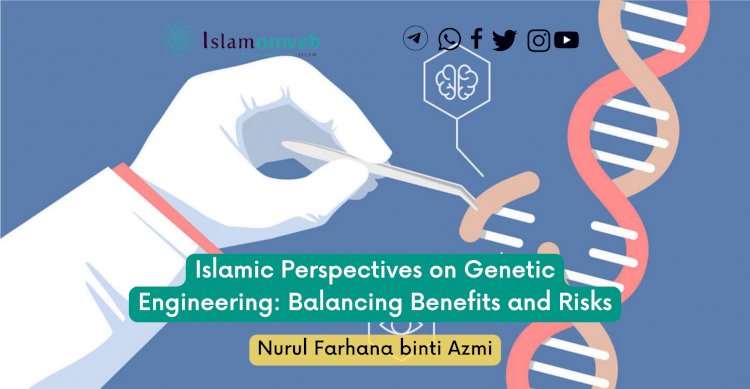


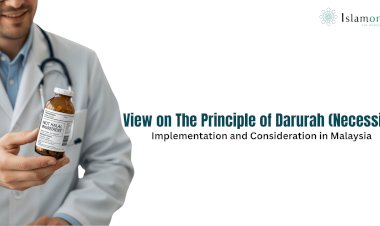
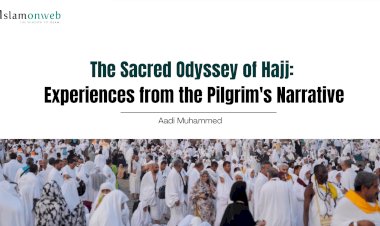
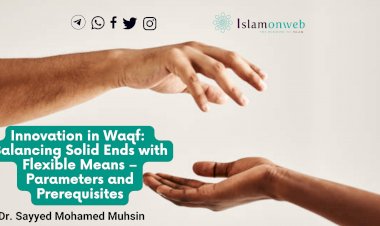
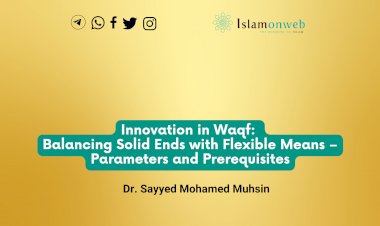

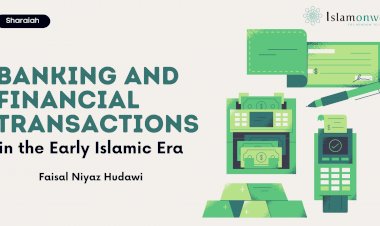














Leave A Comment